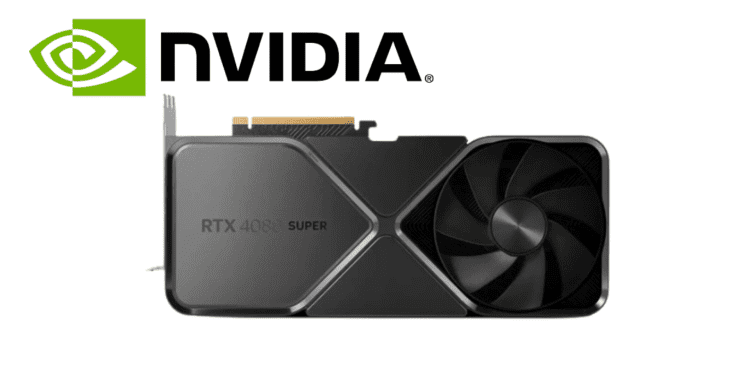- Nvidia introduced RTX 4080 Super, 4070 Ti Super, and 4070 Super GPUs optimized for AI and gaming locally on PCs without cloud connectivity. Priced $599-$999.
- GPUs aim to accelerate AI tasks like image generation 150x faster than previous models. Nvidia positioning installed base of 100M+ RTX GPUs as ready for new local AI apps and workflows.
- Announcement comes amid competition in AI chips for local devices from Intel, AMD, Qualcomm. Nvidia trying to remain dominant as AI shifts beyond the cloud with lineup spanning consumer and data center GPUs.
Nvidia has announced three new graphics cards – the RTX 4080 Super, RTX 4070 Ti Super, and RTX 4070 Super. These new GPUs are designed to run AI applications and games locally on a PC or laptop without needing cloud connectivity.

New GPUs Target AI and Gaming
The new GPUs range in price from $599 to $999 and feature additional tensor cores optimized for AI workloads like image generation and video background removal. While aimed primarily at gaming, Nvidia says the cards can also rip through AI tasks up to 150x faster than previous models.
With over 100 million RTX GPUs already shipped, Nvidia is positioning this installed base as ready for new AI applications and workflows. The company expects generative AI to find new uses in gaming, creative tools like Photoshop, and more over the coming year.
Local AI vs Cloud AI
The focus on local AI comes as the tech industry debates the best deployment models for large language models and generative AI. While cloud-based AI allows leveraging massive computing power, local AI via specialized chips aims to enable more responsive applications without round-trip latency.
Nvidia suggests a hybrid approach, with cloud AI handling complex requests and local RTX tensor cores running latency-sensitive tasks. The new GPUs will also be export-compliant, offering an alternative to Chinese researchers unable to access Nvidia’s cloud offerings.
Competition Heats Up in Local AI Chips
Nvidia’s announcement comes amid growing competition in AI chips for local devices. Intel, AMD, and Qualcomm have all announced new silicon targeting so-called “AI PCs.”
Microsoft is also pushing its vision of an “AI edge” with specialized hardware and an updated Windows release later this year. With its new lineup spanning consumer and data center GPUs, Nvidia aims to remain dominant as AI shifts beyond the cloud.
Conclusion
Nvidia’s latest graphics cards usher in a new era of local AI acceleration and generative applications. While still ensuring top gaming performance, the additional tensor core horsepower aims to make AI readily accessible to consumers and creators. With AI expanding beyond the cloud, Nvidia is striving to lead across all deployment environments.














